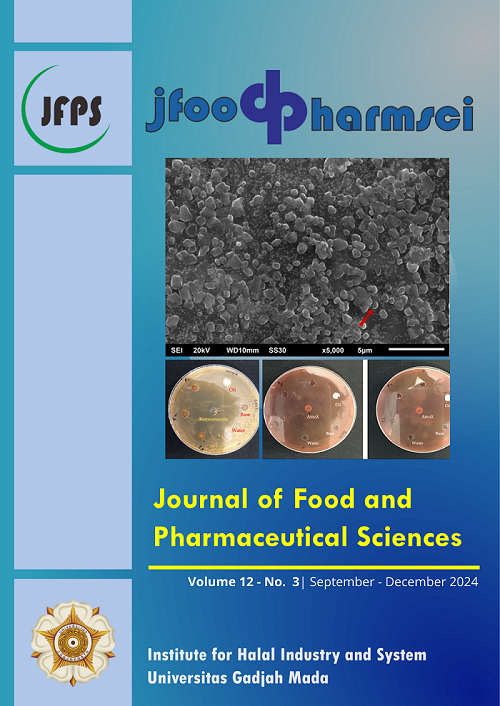Irritation Assessment of Herbal Deodorant from Essential Oil of Pomelo (Citrus maxima) Peel on Rabbit Skin
Abstract
A deodorant manages an unpleasant body odor through both reducing and suppressing antibacterial activity and it is formulated generally using antibacterial agents and fragrances. Nowadays, quaternary ammonium compounds like triclosan, aluminum salts, and odor eliminators are used as antibacterial agents and fragrance in deodorant products. A nature-based deodorant potentially replace the synthetic deodorant with less irritating effect. Pomelo (Citrus maxima) is one of the Indonesian plants which has some bioactive compounds, including limonene. Essential oil of Pomelo peel (EOPP) exhibits an antibacterial activity as well as fragrance. The aim of this research is to observe the irritation effect of EOPP deodorant on rabbit skin. The irritation assay of herbal deodorant of EOPP with various concentrations (F1: 1.25%; F2: 2.5% and F3: 5%) was carried out based on protocol for dermal acute irritation test on rabbit skin. All the formulations performed the same grades (negligible criteria) with the irritation index of F1, F2 and F3: 0; 0.037 and 0.148, respectively. The herbal deodorants with various concentrations of EOPP did not show an irritating effect on rabbit skin.














